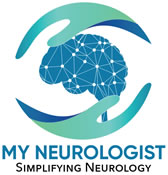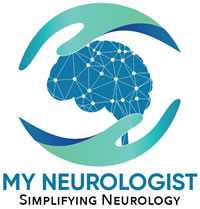Depression is a common mood disorder affecting about 5% of general population worldwide. In the USA, more than 7% people have this condition. It is somewhat more common in women and in elderly.
What are different symptoms of depression?
Depression may cause sadness, hopelessness, pessimism, worthlessness, guilty feeling, loss of interest in social activities, pleasure or hobbies, decreased energy, decreased libido, relationship problems, fatigue, restlessness, irritability, anxious feeling, difficulty concentration, forgetfulness, insomnia with early morning awakening, or sometimes oversleeping, loss of appetite or overeating, headaches, body aches, nausea, diarrhea, constipation, slowed walking and slowed talking, self-harm, thoughts of self-harm or suicide, or suicidal attempt.
Are there different types of depression?
For sake of clarity, doctors divide depression in following types:
- Major depression, with symptoms described above, it is a disabling condition
- Dysthymia: Persistent depressed mood for a year or two
- Post-partum depression: Depression after childbirth
- Psychotic depression: Depression with additional features of psychosis
- Seasonal affective disorder: Depression in winter months
- Bipolar disorder: It is a different disorder with depression being a major part of it.
- Secondary depression: Depression due to other conditions, like cancer or pain.
What are the risk factors for depression, or who has higher chances of getting it?
Risk factors for depression include personal or family history of depression, major physical or emotional trauma, certain diseases (e.g., cancer, heart disease), and certain medicines.
How is depression diagnosed?
It is diagnosed by taking proper history from the patient and sometimes, with patient’s permission, also from people associated with the patient. There is no lab or imaging test to make a diagnosis of depression. A clinical criterion has been developed to make its diagnosis. In most cases, it is a straight-forward diagnosis to make.
How is depression treated?
It depends upon the type and cause of depression, but the treatment is a combination of psychotherapy, medicines, and sometimes other measures (such as ECT [electroconvulsive therapy] or TMS [trans-magnetic stimulation]). Medicines typically may take a few weeks to work. During that time, once a medicine is started, patient’s symptoms may get worse before getting better. Close monitoring of the patient is recommended to avoid any possibility of self-harm. This is especially the case in younger patients.
What type of psychotherapy is available for depression?
Psychotherapy can be an effective treatment, especially for mild and situational depression, and especially if used with medicines. It can be talk-therapy by a trained professional. Another type of psychotherapy is CBT or cognitive behavioral therapy. In this type of therapy, patient is educated about different means and ways to minimize chances of depression, its impact, or its complications.
Are there any natural products to treat depression?
No natural product is available that satisfy standard criterion of effectiveness and safety, as applied to medicines. Also, being natural or organic does not mean they are completely safe. At the same time, exercising, sleep hygiene, avoiding alcohol and other drugs of abuse, and avoiding stressful situations or exposure is helpful.
What type of medicines are used for depression?
- SSRIs: Fluoxetine (Prozac), sertraline (Zoloft), citalopram (Celexa), escitalopram (Lexapro), paroxetine (Paxil).
- SNRIs: Venlafaxine (Effexor), duloxetine (Cymbalta), desvenlafaxine (Pristiq), levomilnacipran (Fetzima)
- Tricyclics: Amitriptyline (Elavil), nortriptyline (Pamelor), amoxapine, doxepin, desipramine (Norpramin), imipramine (Tofranil), protriptyline, trimipramine.
- MAO inhibitors: Selegiline, tranylcypromine (Parnate), phenelzine (Nardil).
- Serotonin-Dopamine modulators: Brexpiprazole (Rexulti), aripiprazole (Abilify)
- Miscellaneous: Lithium carbonate (Lithobid), buspirone (Buspar), bupropion (Wellbutrin), mirtazapine (Remeron), trazodone (Oleptro), esketamine (Spravato).
What kind of side effects can happen with anti-depressants?
Each drug is unique with its effects, but a few side effects are shared by many of them. In general, three types of side effects are more noticeable:
- GI side effects: Patient may develop nausea or upset stomach type feeling, usually for a few days. Some may gain weight.
- Mental side effects: It is like a buzz or dizzy feeling, sometimes severe enough that patient cannot take the medicine but, in many cases, it gets better in a few days.
- Sexual side effects: Decreased libido and difficulty getting an orgasm. It can also be the reason to change the medicine. On the other hand, taking an antidepressant may also lead to normalization of sexual activity affected by depression.
- Worsening of depression: Sometimes, especially in younger patients, depression may get worse for a while before getting better. There is risk of self-harm during that time, and it is advised to keep close eye on the patient for a month or two after starting the medicine.
- Sleep disorder: Many antidepressants can cause insomnia and should be taken in the morning. Some others may cause drowsiness and are taken at night. Some can cause restless leg syndrome or make it worse. As depression get better by taking the medicine, sleep pattern also gets better.
- Seizure: Some medicines, like bupropion, can lower seizure threshold and may lead to a seizure.
- Others: There may be other side effects related to a particular drug, e.g., lithium and drugs like aripiprazole.
Are antidepressants addictive?
Antidepressants described above are not addictive, and addictive meds are not used to treat depression. Some patients think that if they take an antidepressant, they will be “hooked up” to drugs. There is no cure for depression, and if a patient has major depression or chronic depression, the need for medicine can be permanent. Depression can improve if patient takes the medicine, but the situation can go back to being depressed if it is stopped. It is also true that if a medicine like an SSRI is suddenly stopped, patient may feel uneasy, restless and anxious for a few days. To minimize this effect, the decision and the process of stopping the medicine should be made with help of prescribing physician.
Why should I take an antidepressant and expose myself to side effects?
We make medical decisions based upon all available options and then choosing the best or the least harmful one. In most patients, the impact and nature of side effects can be a much smaller problem in comparison to untreated depression and its complications.
What are complications of untreated depression?
Untreated depression has multiple psychological and physical effects. It can impair many brain functions and can cause multiple physical body ailments. On social level, it may lead to broken relationships, lost productivity, lack of fulfillment of ambitions or goals. In more severe cases, it may lead to self-harming behavior or suicide.
Are antidepressants safe during pregnancy?
Ideally, all drugs are avoided during pregnancy, especially in the first 3-4 months. There is no completely safe antidepressant during pregnancy, and it is best to avoid drugs to minimize risk to the pregnancy or the child. With that said, in some patients, the risk of stopping an antidepressant might be higher than its potential complications. Every patient should have a frank discussion with the physician before considering pregnancy or unprotected sex.
What if antidepressants do not work?
Medicines are the most effective treatment for depression, but in some patients they either are ineffective or cause intolerable side effects. In many others, they work but not as effectively as expected. In such cases, there are a few additional options:
- ECT: Electroconvulsive therapy is an effective treatment in selective patients who do not respond to conventional med treatment and continue to be very depressed or suicidal.
- TMS: Trans-magnetic brain stimulation is another mode of relatively safe treatment for patients not fully treated with med.
- VNS: Vagus nerve stimulator. This is another treatment that can be used in conjunction with medicines for chronic depression. This is an invasive procedure, which involves permanently putting a wire around a nerve in the neck and an electrical generator, like a pacemaker, under the chest’s skin.
Where can I get more information about depression?
American Psychiatric Association
National Institute of Mental Health


Leave a Reply
Your email is safe with us.
You must be logged in to post a comment.